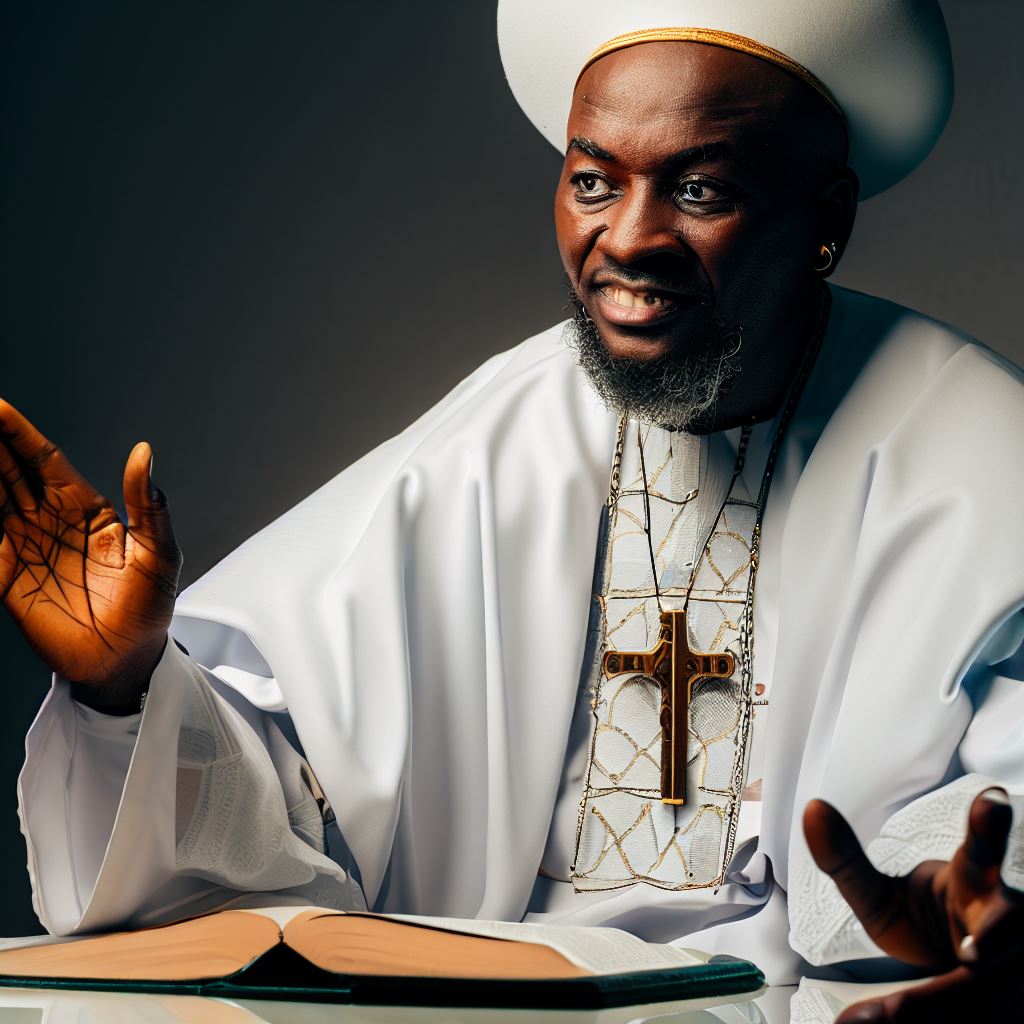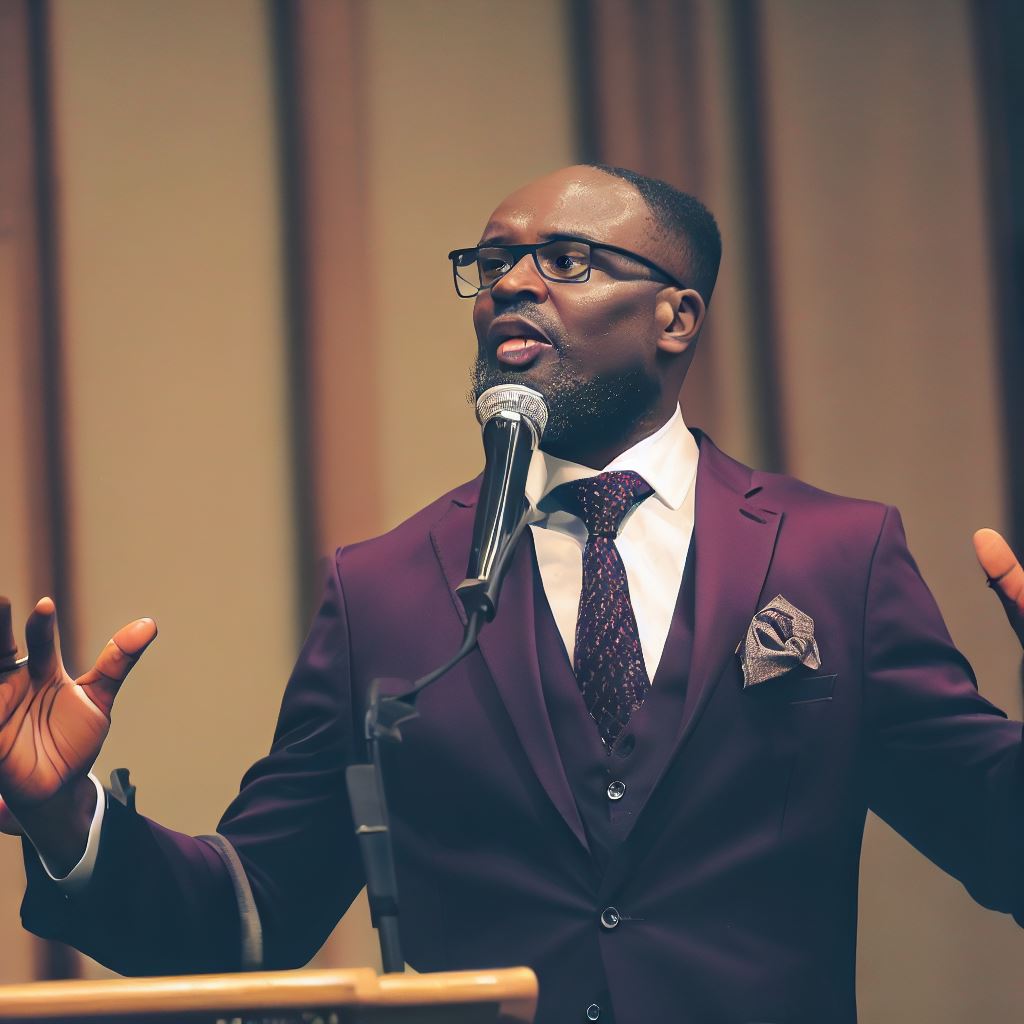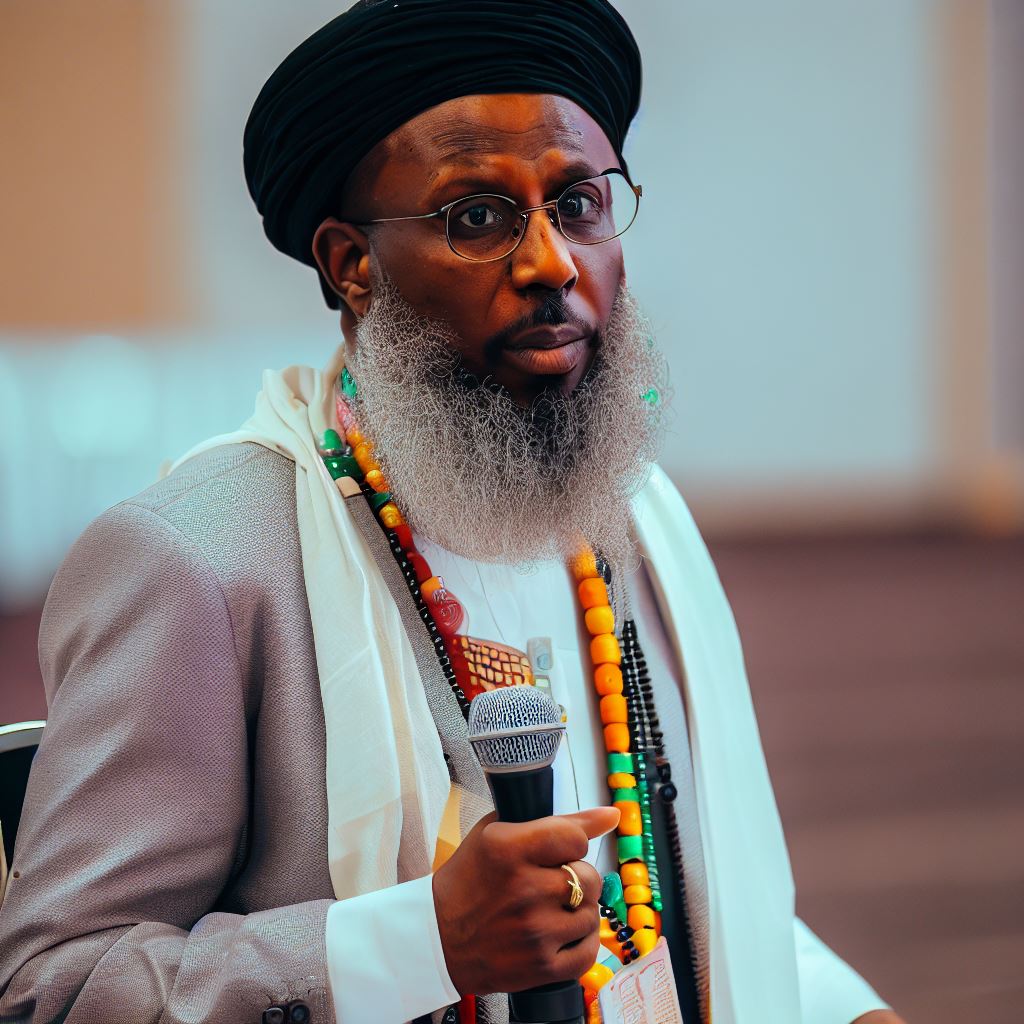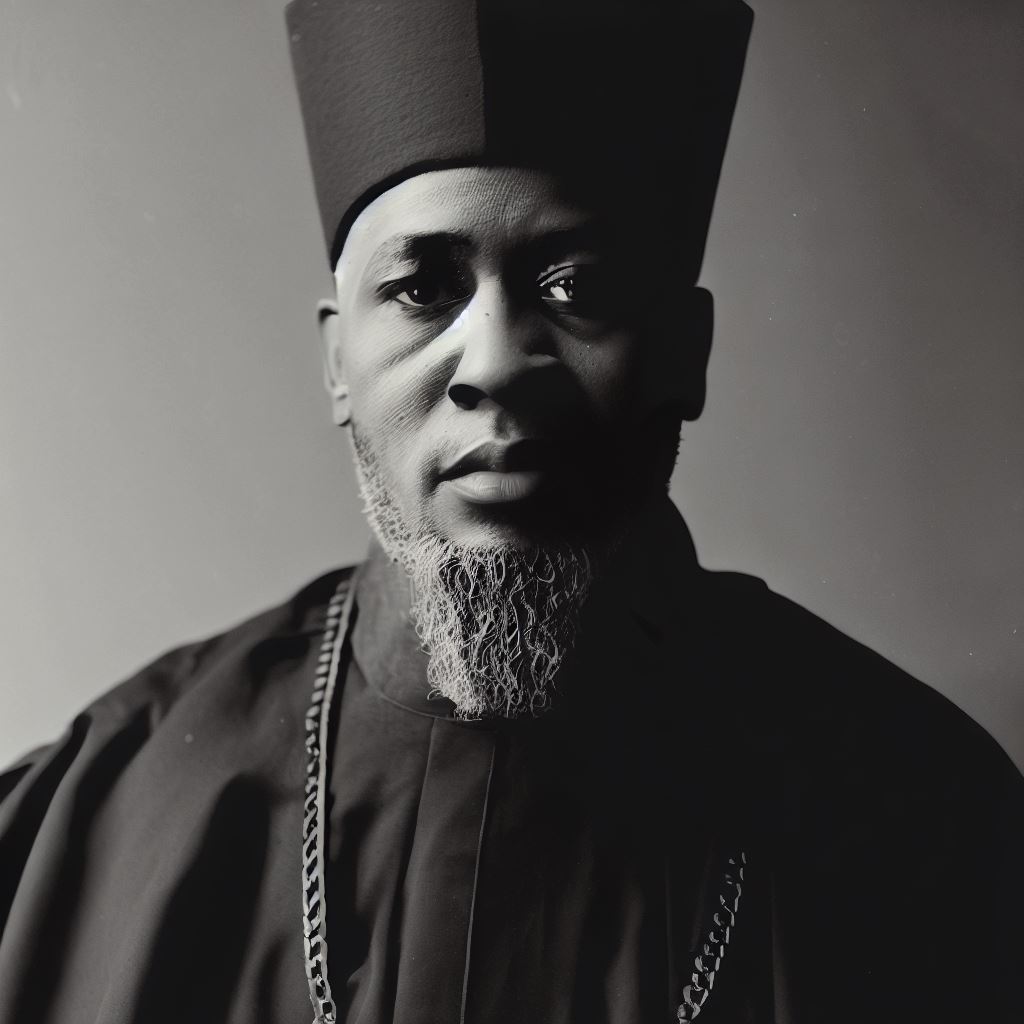Introduction
Nigeria clergy has been marred by conflicts and resolutions that need understanding. Exploring this topic is crucial to address the impact of conflicts on Nigeria’s religious landscape.
Briefly introduce the topic of understanding conflicts and resolutions in Nigeria’s clergy
The Nigerian clergy is a diverse group of individuals from different religious backgrounds. While they may share many common values, they also have different beliefs and practices.
This can sometimes lead to conflict within the clergy.
Explain the importance of exploring this topic
Understanding conflicts and resolutions in Nigeria’s clergy is important for a number of reasons. First, it can help us to better understand the challenges faced by clergy members.
Second, it can help us to identify and address the root causes of conflict. Third, it can help us to develop effective strategies for resolving conflict.
Here are some specific benefits of understanding conflicts and resolutions in Nigeria’s clergy:
- It can help to promote unity and cooperation within the clergy.
- It can help to improve communication and understanding between different religious groups.
- It can help to reduce conflict and promote peace and harmony in society.
- It can help to strengthen the clergy’s role in promoting social and economic development.
By studying conflicts and resolutions in Nigeria’s clergy, we can gain valuable insights that can help us to build a more peaceful and prosperous society.
Overview of Nigeria’s Clergy
Background on Nigeria’s religious landscape
Nigeria is a country known for its diverse religious landscape, with various religious groups coexisting within its borders.
The major religions in Nigeria include Christianity, Islam, traditional African religions, and a small percentage of adherents who identify as atheists or practice other minority religions.
Christianity and Islam are the two dominant religions in Nigeria, with a significant number of Nigerians identifying as Christians and Muslims respectively.
The country is often referred to as the “Giant of Africa” due to its large population, and this religious diversity is evident in the numerous churches, mosques, and religious institutions found throughout the country.
Prominent role of clergy in Nigerian society
The clergy plays a prominent role in Nigerian society, serving as spiritual leaders and guides for their respective religious communities.
Whether they are pastors, imams, or traditional religious leaders, the clergy provides guidance, support, and often acts as a voice for their followers.
In Nigeria, religious leaders are highly respected and hold significant influence over their followers.
Many Nigerians turn to their clergy for advice on personal matters, seek comfort during challenging times, and rely on them to provide moral and ethical guidance.
This makes the clergy crucial in shaping societal values and behaviors.
Diversity of religious denominations and beliefs in Nigeria
Nigeria’s religious landscape is incredibly diverse, with numerous religious denominations and beliefs present in the country.
Within Christianity, there are various denominations such as Roman Catholic, Anglican, Pentecostal, and other independent churches.
Each denomination has its unique doctrines, practices, and leadership structures.
In Islam, Nigeria has two major sects, Sunni and Shia, with Sunni Islam being the majority.
Additionally, there are various Islamic spiritual groups and movements that influence Nigerian Muslims’ religious practices and beliefs.
Besides Christianity and Islam, Nigeria is also home to a variety of indigenous religions practiced by different ethnic groups.
These traditional African religions incorporate elements of ancestor worship, nature worship, and ritual practices.
Many Nigerians continue to engage in these traditional practices alongside their professed religious affiliation.
This religious diversity fosters a rich tapestry of beliefs, rituals, and cultural practices throughout Nigeria.
However, it can also be a source of conflicts and tensions, as different religious groups occasionally clash over doctrinal differences or seek to assert their dominance.
Read: Celebrating Diversity: Different Sects in Nigeria’s Clergy
Understanding Conflicts in Nigeria’s Clergy
Common sources of conflicts within Nigerian clergy
- Differences in doctrine and interpretation.
- Power struggles and competition for authority.
- Political and socio-cultural influences.
The impact of conflicts on religious communities and society at large
Conflicts within Nigeria’s clergy have far-reaching consequences for religious communities and society as a whole.
These conflicts often lead to division, distrust, and even violence among believers.
When religious leaders are unable to find common ground, it affects their ability to provide spiritual guidance and often leads to the fragmentation of religious communities.
The lack of unity within clergy can undermine the effectiveness of religious institutions and weaken their influence in society.
Additionally, conflicts within the clergy can create a negative perception of religion among the general public, driving some people away from organized faith and exacerbating existing societal tensions.
Furthermore, the impact of conflicts in the clergy goes beyond religious boundaries.
In a country like Nigeria, where religion is intertwined with politics and socio-cultural norms, conflicts within the clergy can spill over into the broader society.
When religious leaders engage in power struggles or become divided along political lines, it can fuel societal divisions, contribute to political instability, and even incite violence.
Conflicts between different sects or denominations of the clergy in Nigeria have sometimes led to outbreaks of violence, resulting in loss of lives and the destruction of property.
Examples of notable conflicts in Nigeria’s clergy
Case studies of denominational disputes
During the 2010s, Nigeria witnessed several denominational disputes, such as the conflicts between the Anglican Church and the Pentecostal movement.
These disputes often revolved around doctrinal differences, power struggles, and competing interpretations of scripture.
Analysis of conflicts between clergy and traditional rulers
In Nigeria, the clergy’s relationship with traditional rulers occasionally leads to conflicts.
Disagreements over land ownership, traditional cultural practices, and political influence have caused tensions between religious leaders and traditional authorities.
These conflicts highlight the complexities of balancing traditional customs and religious beliefs in Nigeria’s diverse society.
In essence, conflicts within Nigeria’s clergy have deep-rooted causes, including differences in doctrine, power struggles, and political influences.
These conflicts have significant implications for religious communities and society at large, leading to division, violence, and the erosion of trust.
It is crucial for religious leaders and stakeholders to address these conflicts through dialogue, mutual understanding, and a commitment to unity.
Resolving conflicts within the clergy can contribute to a more harmonious and peaceful society in Nigeria.
Read: Nigerian Clergy and Health Care: Contributions and Roles

Approaches to Resolving Conflicts
Various Methods Used to Address Conflicts Within the Clergy
- Mediation and arbitration: Third-party assistance in facilitating communication and finding common ground.
- Dialogue and reconciliation: Open discussions aimed at understanding each other’s perspectives and finding peaceful solutions.
- Formal ecclesiastical procedures: Adhering to established guidelines and protocols within the religious institution.
Evaluation of the Effectiveness of Different Conflict Resolution Strategies
It is crucial to assess the efficacy of conflict resolution strategies to ensure sustainable solutions are implemented.
Mediation and arbitration have proven to be valuable in fostering understanding and reaching compromises.
By involving neutral third parties, conflicts can be resolved in a fair and unbiased manner. The confidentiality of the process encourages open communication and trust building.
Dialogue and reconciliation emphasize open and honest communication, essential for understanding the root causes of conflicts within Nigeria’s clergy.
By creating safe spaces for discussions, individuals are encouraged to voice their concerns and grievances.
Formal ecclesiastical procedures provide a structured approach to addressing conflicts. These procedures typically include hierarchies and established channels for dispute resolution.
While they may not always be the most efficient, they ensure compliance with religious protocols and maintain order within the institution.
Success Stories of Conflicts Resolved Within Nigeria’s Clergy
Despite the challenges faced by Nigeria’s clergy, there are success stories that exemplify the effectiveness of conflict resolution in promoting unity and growth within religious communities.
One such success story is the resolution of a dispute between two prominent pastors who held differing doctrinal views.
Through mediation and dialogue, facilitated by respected elders in the clergy, the pastors were able to find common ground and reconcile their differences.
This resolution not only strengthened their individual ministries but also fostered unity within the larger religious community.
In another instance, a conflict within a church regarding the mismanagement of funds threatened to divide the congregation.
With the intervention of a trained mediator, the church members engaged in fruitful dialogue centered on accountability and transparency.
Ultimately, a financial oversight committee was established, ensuring responsible handling of church funds and restoring trust among the congregation.
These success stories demonstrate the power of effective conflict resolution strategies within Nigeria’s clergy, emphasizing the importance of open communication, mediation, and adherence to established procedures.
In fact, conflicts within Nigeria’s clergy can be addressed effectively through various approaches.
Mediation and arbitration, dialogue and reconciliation, as well as formal ecclesiastical procedures, all play significant roles in maintaining harmony and resolving disputes.
Evaluating the effectiveness of these strategies is crucial, as it allows for continuous improvement and the implementation of sustainable solutions.
Highlighting success stories of conflicts resolved within Nigeria’s clergy inspires hope and encourages the adoption of proactive conflict resolution measures.
Read: Clergy and Politics: An In-depth Look at Nigeria’s Scenario
See Related Content: Balancing Tradition and Modernity in Nigeria’s Clergy
Factors Influencing Conflict Resolutions
Conflict resolutions within Nigeria’s clergy are influenced by various factors, including the role of leadership within religious institutions and external factors such as government intervention and interfaith organizations.
Role of leadership within religious institutions
Examining the role of leadership within religious institutions reveals the impact charismatic leaders have in mediating conflicts.
These leaders possess the natural ability to inspire and influence their followers, which proves beneficial when resolving internal disputes.
Charismatic leaders often create a sense of unity and trust, enabling them to bridge the gap between conflicting parties and find common ground.
Their charisma helps maintain the integrity and stability of religious institutions.
Furthermore, promoting transparency and accountability among leaders significantly contributes to conflict resolutions.
When leaders are transparent about their intentions, actions, and decision-making processes, it fosters trust and reduces misunderstandings.
Open communication channels and inclusive decision-making processes allow different perspectives to be heard, enabling conflicts to be resolved through collaboration and understanding.
By holding leaders accountable for their actions, conflicts can be prevented, minimized, or effectively addressed.
The influence of external factors on conflict resolutions
The influence of external factors on conflict resolutions cannot be overlooked. Government intervention and legal frameworks play a crucial role in resolving conflicts within Nigeria’s clergy.
The government’s ability to enforce laws and regulations ensures that disputes are handled fairly and justly.
Legal frameworks establish a systematic approach to conflict resolutions, providing guidelines and procedures for mediation, arbitration, or legal interventions.
These mechanisms instill confidence in the process and contribute to the sustainability of resolutions.
Additionally, interfaith organizations and initiatives contribute significantly to conflict resolutions in Nigeria’s clergy.
These initiatives foster dialogue, understanding, and collaboration between different religious groups.
By bringing together leaders and followers from various faith traditions, interfaith organizations create opportunities for shared experiences and collective problem-solving.
Through joint initiatives, religious communities can address broader societal issues, reducing tensions and promoting peaceful coexistence.
In general, understanding the factors influencing conflict resolutions within Nigeria’s clergy is essential for promoting peace and harmony within religious institutions.
The role of leadership, specifically charismatic leaders who can mediate conflicts and promote transparency, is crucial.
Additionally, external factors such as government intervention and legal frameworks, as well as interfaith organizations and initiatives, play significant roles in resolving conflicts.
Publish Your Professional Profile, Business or Brand
Showcase your expertise, gain trust, and boost visibility instantly on Professions.ng.
Publish NowBy acknowledging and addressing these factors, Nigeria’s clergy can effectively navigate conflicts and foster a united and harmonious religious community.
Read: Nigeria’s Clergy in the Digital Age: An Exploration
Conclusion
To recap, this blog post discussed conflicts and resolutions within Nigeria’s clergy. It emphasized the significance of understanding these conflicts and resolutions within the clergy.
It is important for readers to foster dialogue and promote peaceful resolutions within their own communities.
Conflicts and resolutions within Nigeria’s clergy play a significant role in shaping the religious landscape of the country.
Understanding these conflicts is essential for promoting unity and peaceful coexistence among the clergy and the wider community.
By fostering dialogue and embracing peaceful resolutions, individuals can contribute to a more harmonious religious environment.
It is through these efforts that Nigeria can move forward and build a stronger, more tolerant society.




